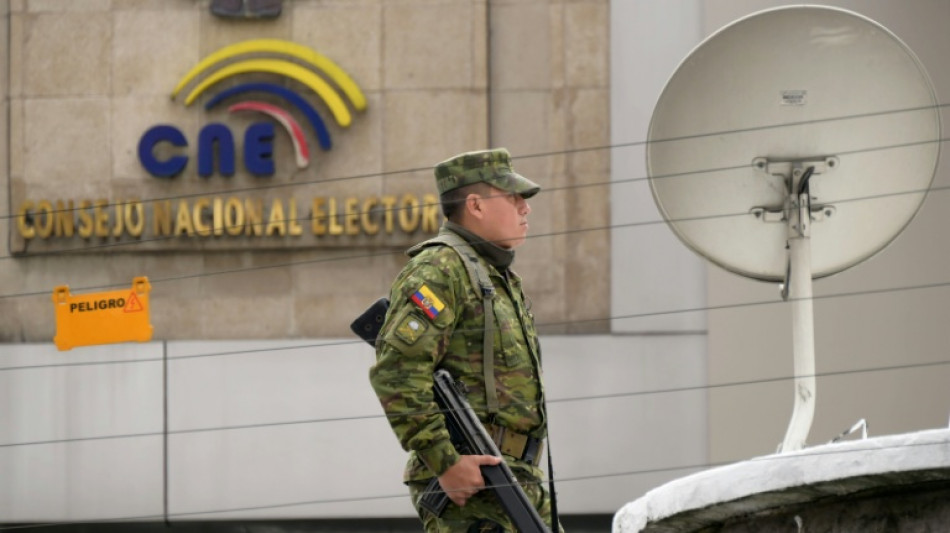
-
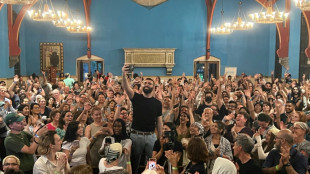 The reluctant fame of Gazan photojournalist Motaz Azaiza
The reluctant fame of Gazan photojournalist Motaz Azaiza
-
Global cocaine market hit new record highs: UNODC
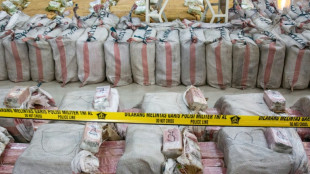
-
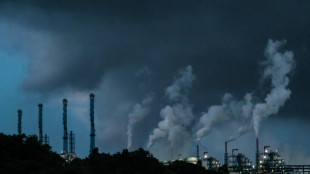 Environment fears over $6 bn Indonesia EV battery project: NGOs
Environment fears over $6 bn Indonesia EV battery project: NGOs
-
Dinusha shines on debut as Sri Lanka bowl out Bangladesh for 247
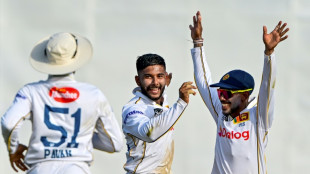
-
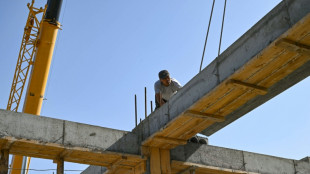 Migrant money from Russia a lifeline for Central Asia
Migrant money from Russia a lifeline for Central Asia
-
Nigerian farms battle traffic, developers in downtown Abuja
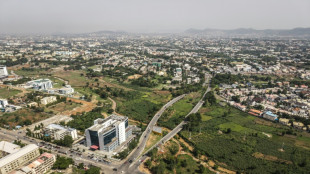
-
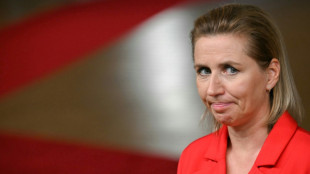 Denmark to push for stricter EU migration policies
Denmark to push for stricter EU migration policies
-
Nearly one-third of Pacific nation Tuvalu seeks Australian climate visa
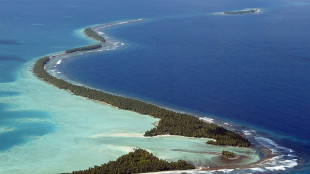
-
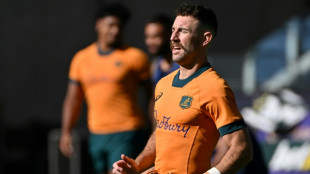 White leads six Wallabies in Force side to face Lions, but no Beale
White leads six Wallabies in Force side to face Lions, but no Beale
-
Thai cannabis stores fret as government moves to tighten rules on sales
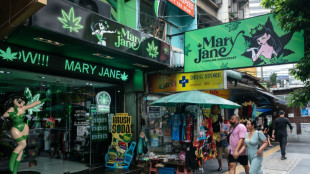
-
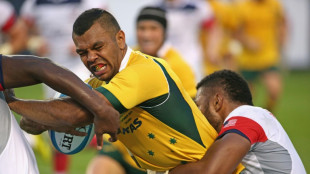 Beale to spearhead First Nations and Pasifika side against Lions
Beale to spearhead First Nations and Pasifika side against Lions
-
Wimbledon: England's garden Grand Slam
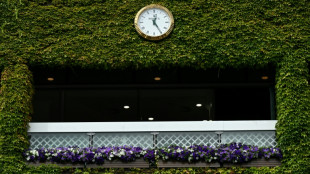
-
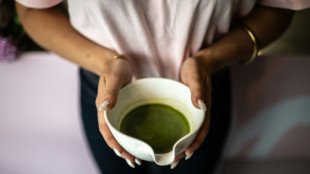 Matcha: the Japanese tea taking over the world
Matcha: the Japanese tea taking over the world
-
Inter Milan, Monterrey join Dortmund in Club World Cup last 16

-
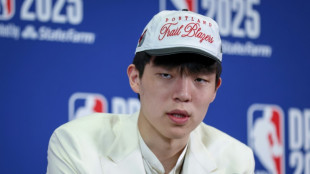 Trail Blazers pick China's Yang in NBA draft first-round surprise
Trail Blazers pick China's Yang in NBA draft first-round surprise
-
Global matcha 'obsession' drinks Japan tea farms dry

-
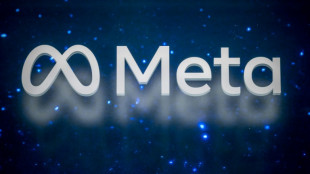 US judge sides with Meta in AI training copyright case
US judge sides with Meta in AI training copyright case
-
'Battle of Seattle' as Inter down nine-man River to advance

-
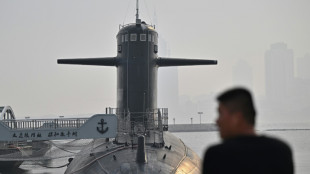 China hosts Iranian, Russian defence ministers against backdrop of 'momentous change'
China hosts Iranian, Russian defence ministers against backdrop of 'momentous change'
-
Stocks down with eyes on Mideast, dollar hit by Trump Fed comment
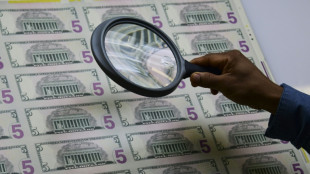
-
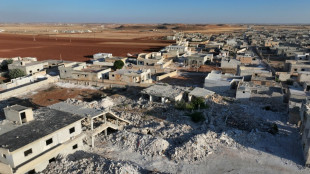 Syrian architect uses drone footage to help rebuild hometown
Syrian architect uses drone footage to help rebuild hometown
-
Verstappen hoping upgrades can boost title defence at Red Bull home race
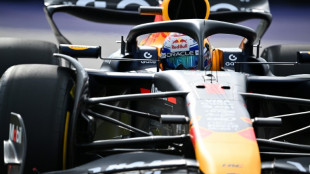
-
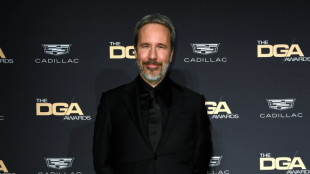 After 'Dune,' Denis Villeneuve to helm next James Bond film
After 'Dune,' Denis Villeneuve to helm next James Bond film
-
Thailand makes new proposal to restrict cannabis sales
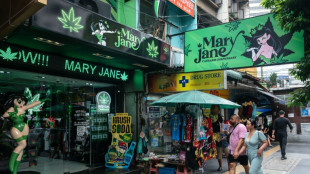
-
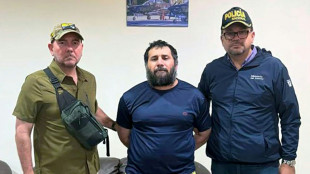 Ecuador's most-wanted gang leader 'Fito' captured
Ecuador's most-wanted gang leader 'Fito' captured
-
Tunisia U-turn on phosphate plant sparks anger in blighted city
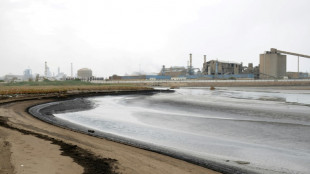
-
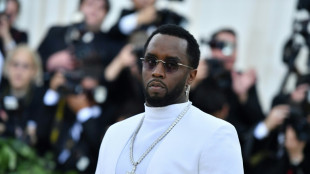 Trial of Sean 'Diddy' Combs heads into closing arguments
Trial of Sean 'Diddy' Combs heads into closing arguments
-
Wallabies release Reds pair Faessler and Paisami for Lions clash
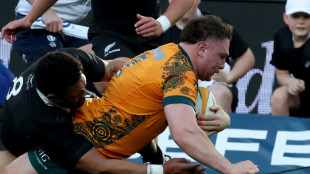
-
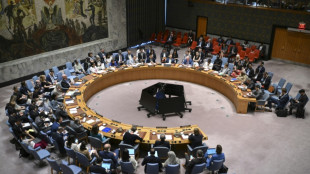 UN Charter: a founding document violated and ignored
UN Charter: a founding document violated and ignored
-
Vinicius, Mbappe have to defend: Real Madrid's Alonso
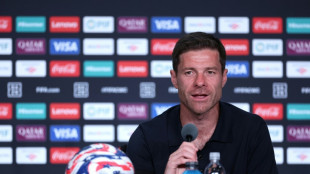
-
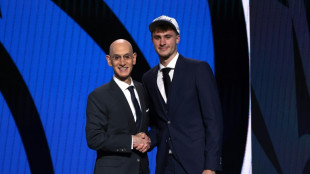 US teen Cooper Flagg chosen by Mavericks with top pick in NBA draft
US teen Cooper Flagg chosen by Mavericks with top pick in NBA draft
-
Guardiola says City must be ready to 'suffer' in Orlando heat
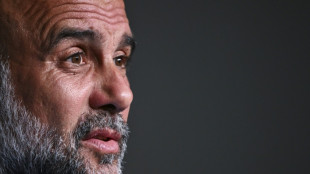
-
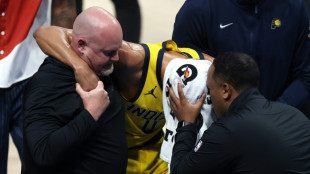 NBA studying uptick of Achilles injuries - Silver
NBA studying uptick of Achilles injuries - Silver
-
On Its Centennial: The Occasion of Replacing the Kiswa of the Noble Kaaba Embodies the Kingdom of Saudi Arabia's Enduring Care for the Two Holy Mosques
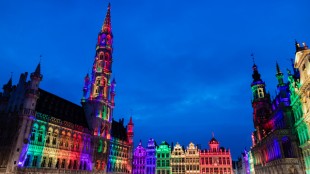
-
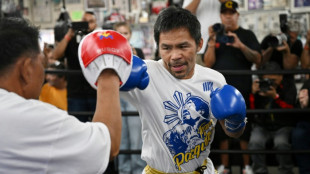 Pacquiao 'hungry' for comeback after four-year layoff
Pacquiao 'hungry' for comeback after four-year layoff
-
'Job done': Sundowns coach proud despite Club World Cup exit
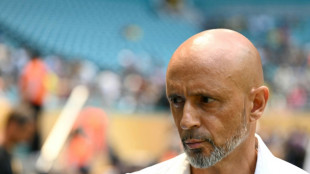
-
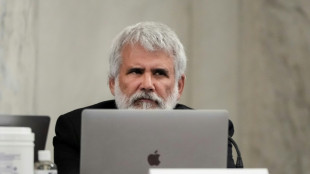 RFK Jr vaccine panel targets childhood vaccinations in first meeting
RFK Jr vaccine panel targets childhood vaccinations in first meeting
-
Tech giants' net zero goals verging on fantasy: researchers

-
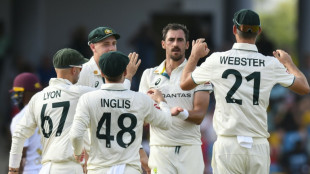 Australia quicks hit back after strong West Indies bowling effort
Australia quicks hit back after strong West Indies bowling effort
-
Dortmund through to Club World Cup last 16, Fluminense deny Sundowns

-
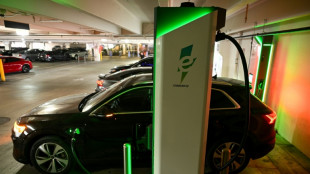 Judge orders Trump admin to release billions in EV charging funds
Judge orders Trump admin to release billions in EV charging funds
-
Sale of NBA's $10 bn Lakers expected to close this year
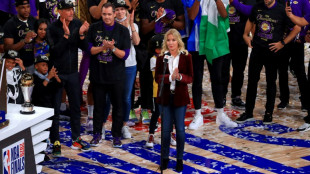
-
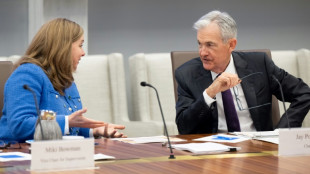 US Fed proposes easing key banking rule
US Fed proposes easing key banking rule
-
Nvidia hits fresh record while global stocks are mixed
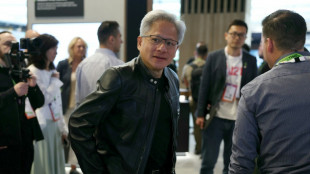
-
 Elliott-inspired England to play Germany in Under-21 Euros final
Elliott-inspired England to play Germany in Under-21 Euros final
-
Gunmen kill 11 in crime-hit Mexican city
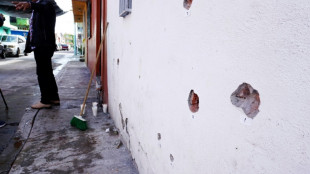
-
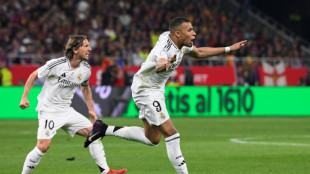 Mbappe absent from Real Madrid squad for Salzburg Club World Cup clash
Mbappe absent from Real Madrid squad for Salzburg Club World Cup clash
-
Sainz opts out of race for FIA presidency

-
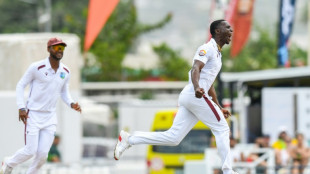 Shamar Joseph rips through Australia top order in first Test
Shamar Joseph rips through Australia top order in first Test
-
Court rejects EDF complaint over Czech nuclear tender
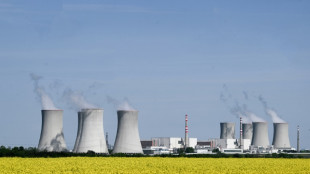

A 50-year crisis -- Ecuador's next president faces a stern test
In the throes of a bloody drug war, a shrinking economy and an acute energy crisis, Ecuadorans are remarkably optimistic about their country's future as they prepare to vote in Sunday election.
The past few years have been brutal for Ecuador, a scenic Andean nation of about 18 million people once a bastion of stability in a troubled region.
But drought-fueled power cuts have plunged swaths of the country into darkness, and drug-fueled violence has seen a presidential candidate assassinated, prisons overrun by gangs and gunmen storming a television station while journalists were live on air.
Yet a December survey by Comunicaliza, a local polling firm, showed more than 50 percent of voters think their country will be better off this time next year.
"Why?" less cheery observers in Quito ask wryly.
Whether hawkish President Daniel Noboa or leftist rival Luisa Gonzalez wins Sunday's election -- or an April runoff -- they will be bombarded by challenges, any one of which alone would be daunting.
"Ecuador is in a very difficult moment, I think in the worst crisis since we returned to democracy," said Leonardo Laso, a local political analyst, referring to a period of deep crisis almost half a century ago.
The most acute challenge may be security.
With a dollarized economy, blessed with excellent Pacific ports and wedged between the world's two largest cocaine producers -- Colombia and Peru -- Ecuador has become a paradise for narco-traffickers.
"You have the Albanians and the Balkan mafias, you have the Ndrangheta from Italy, you have the Turkish mafias all operating in Ecuador," said Douglas Farah, a security consultant and Latin America analyst.
"And you have now local gangs like Los Lobos, the Choneros, who are fighting for territory, to be able to move product through Ecuador to their new buyers in Europe and in Asia."
The result has been record levels of murder, extortion and kidnapping that have caught the authorities flatfooted.
"They never had this type of violence," said Farah. "They are getting slammed by a whole new phenomenon for which they are totally unprepared."
Noboa's response has been to deploy the military, arrest gang leaders and intercept cocaine shipments wherever possible.
It has given Ecuadorans a sense that something is being done, but few experts believe it is a long-term strategy for success.
The alternatives -- relying on intelligence, effective policing, prison reform and developing jobs and social services -- all cost time and money. Ecuador has little of either.
- Economic woes -
Driving around the capital Quito it is easy to spot roads and once gleaming infrastructure investments that were the envy of the region, but are now starting to look a little unkempt.
"It's very likely that the economy contracted last year," said economist Albert Acosta Burneo, pointing in part to rolling blackouts in late 2024 that shuttered businesses for a chunk of December.
The crisis was caused by a drought that hit hydropower generation, but experts also blame a lack of investment in electricity generation.
After more than a decade of spending without the proceeds of a commodities boom that once padded treasury coffers, government debt now stands at about 57 percent of GDP.
Noboa was recently forced to turn to the IMF to build up a financial war chest.
But more cost cutting is likely as the country still struggles to borrow on bond markets cheaply -- thanks to low reserves and more than a dozen recent defaults.
The security situation has made the country's economic woes all the worse, scaring away visitors and investors alike.
"There are no tourists, there are no customers," said 58-year-old Maria Delfina Toaquiza Ughsa, an Indigenous artist who has a stall on a hill overlooking Quito's old town.
Political analyst Laso said Noboa's penchant for using the military to tackle the drug problem has also hurt the country's image.
"He goes out with a bulletproof vest and helmet, he declares a state of emergency, he closes land borders during the election for a potential threat that may occur, he says that we are at war, this negates any possibility of investment," he told AFP.
If that were not enough, the new president will also have to find a way to navigate US President Donald Trump's love of deportations and tariffs.
Noboa has agreed to help with US deportations, even though Ecuadorans send about $6 billion back home every year, and any drop in remittances or emigration would be keenly felt.
"Migration was like a pressure valve for the economy, that is now blocked thanks to the policies of Trump," said Acosta Burneo.
X.AbuJaber--SF-PST
